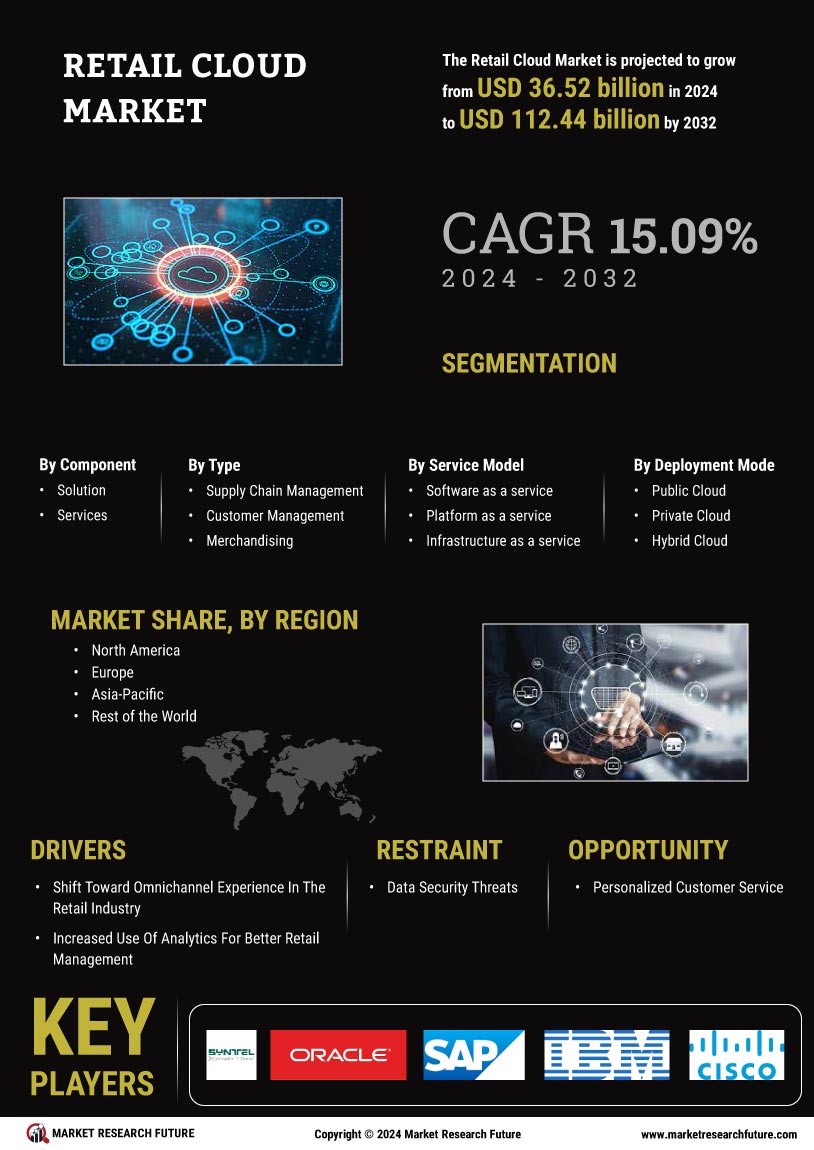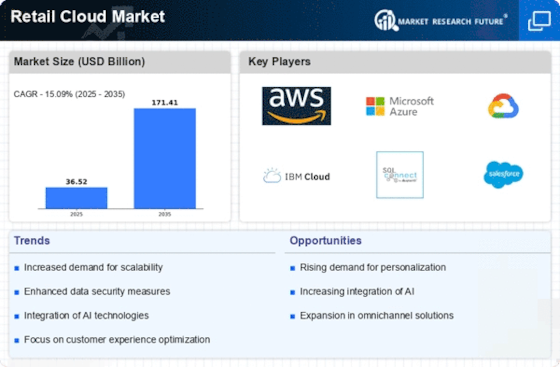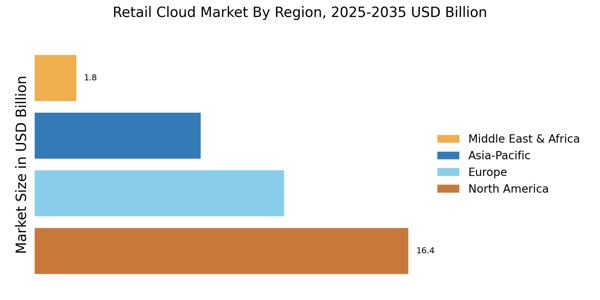The Retail Cloud Market is currently experiencing a transformative phase, driven by the increasing demand for scalable and flexible solutions among retailers. As businesses strive to enhance operational efficiency and customer engagement, cloud-based platforms are emerging as essential tools. These platforms facilitate seamless integration of various retail functions, including inventory management, customer relationship management, and data analytics. The shift towards digitalization is prompting retailers to adopt cloud solutions that not only streamline processes but also provide valuable insights into consumer behavior. This evolution appears to be reshaping the competitive landscape, as companies leverage technology to differentiate themselves in a crowded marketplace. The global retail cloud market is undergoing rapid transformation as retailers increasingly adopt retail cloud platforms to enhance scalability, operational efficiency, and customer engagement through cloud computing in retail environments.
Current cloud market trends indicate rising cloud demand across the cloud retail ecosystem, driven by the need for flexible infrastructure, real-time analytics, and omnichannel retail capabilities. Digital transformation initiatives across the cloud computing retail industry are accelerating adoption of cloud-based platforms, enabling retailers to optimize inventory management, customer analytics, and sales operations. Retail cloud solutions delivered through SaaS, PaaS, and IaaS models provide cloud solutions for retailers seeking scalable, cost-effective, and flexible cloud for retail operations.
Moreover, the Retail Cloud Market is characterized by a growing emphasis on security and compliance. Retailers are increasingly aware of the importance of safeguarding sensitive customer information, which has led to the adoption of advanced security measures within cloud infrastructures. This trend suggests that as the market matures, the focus on data protection will likely intensify, influencing purchasing decisions. Additionally, the rise of omnichannel retailing is pushing businesses to seek integrated cloud solutions that support a cohesive customer experience across various touchpoints. Overall, the Retail Cloud Market seems poised for continued growth, driven by innovation and the evolving needs of consumers and retailers alike.
Growing concerns around data protection are increasing the focus on retail cloud security, prompting retailers to adopt cloud platforms with advanced compliance and cybersecurity features. The adoption of cloud managed IT for retail is rising as businesses outsource infrastructure management to improve uptime, performance, and operational efficiency. Cloud computing for retail supports advanced cloud retailing models by enabling real-time data processing, personalized marketing, and seamless customer experiences across channels. The global retail cloud market is expected to witness sustained growth through 2035, supported by expanding e-commerce, digital transformation, and increasing adoption among SMEs.
Increased Adoption of AI and Machine Learning
Retailers are increasingly integrating artificial intelligence and machine learning into their cloud solutions. This trend enables businesses to analyze vast amounts of data, predict consumer behavior, and personalize marketing strategies. By leveraging these technologies, retailers can enhance customer experiences and optimize inventory management.
Focus on Enhanced Security Measures
As data breaches become more prevalent, the Retail Cloud Market is witnessing a heightened focus on security. Retailers are prioritizing cloud solutions that offer robust security features, ensuring the protection of sensitive customer information. This trend indicates a growing awareness of the need for compliance with data protection regulations.
Expansion of Omnichannel Strategies
The Retail Cloud Market is seeing a significant shift towards omnichannel retailing. Businesses are adopting cloud solutions that facilitate seamless integration across various sales channels, providing customers with a unified shopping experience. This trend reflects the changing expectations of consumers who seek convenience and consistency.

















